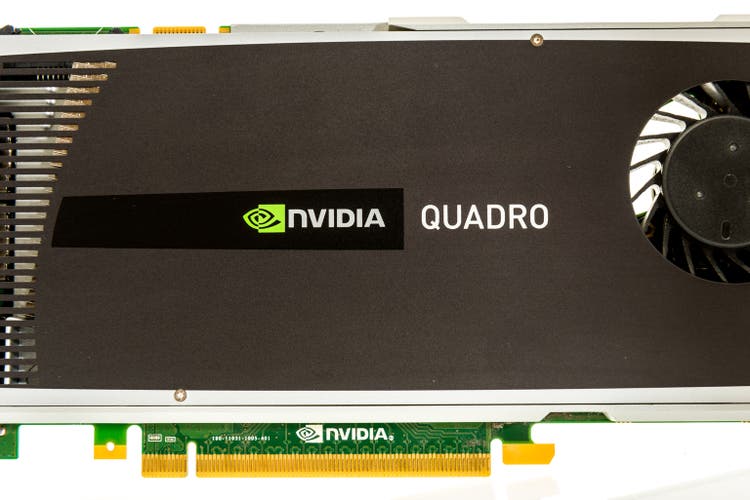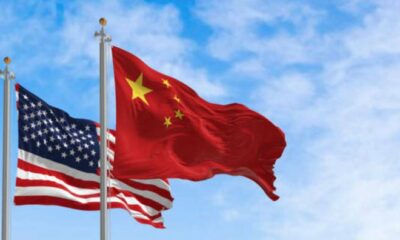Business
Nvidia Reassesses Strategy Following Export Restrictions to China

Nvidia, the prominent semiconductor company, is reassessing its strategy in light of significant export license restrictions imposed by the US government on chip sales to China. In April 2023, the company announced it would incur a substantial charge due to these limitations, reflecting the growing complexities of international trade in technology.
As tensions between the United States and China continue to escalate, Nvidia’s decision signals a broader impact on the semiconductor industry. The restrictions are part of a series of measures aimed at curbing China’s access to advanced technology, particularly in artificial intelligence and high-performance computing. This has placed companies like Nvidia in a precarious position, balancing business interests with compliance to government regulations.
In its latest financial report, Nvidia indicated that the charges related to the export restrictions would affect its revenue projections. The company has been a key player in the AI sector, with its chips powering various applications from data centers to gaming. However, the tightened export controls could hinder its ability to serve a significant market in China, which has been a vital source of growth in recent years.
Nvidia’s Chief Financial Officer, Colette Kress, addressed the situation during an earnings call, stating that the company is “actively exploring alternatives” to mitigate the impact of these restrictions. Kress emphasized that Nvidia remains committed to navigating the challenges posed by the regulatory environment while continuing to innovate and expand its product offerings.
The semiconductor industry is currently facing a turbulent landscape, with companies needing to adapt swiftly to changes in global trade policies. Analysts predict that Nvidia’s experience could serve as a bellwether for other tech firms grappling with similar challenges. The company is not alone in this predicament; other major players in the tech sector are also reevaluating their strategies to align with new regulations.
In the wake of these developments, Nvidia has reiterated its focus on research and development. The company plans to invest heavily in its AI capabilities, aiming to maintain its competitive edge despite the ongoing geopolitical tensions. By fostering innovation, Nvidia hopes to continue its growth trajectory while adhering to the increasingly complex regulatory framework.
The export restrictions imposed by the US government have broader implications for the global semiconductor market. Many analysts are concerned that such measures could lead to a fragmented technology landscape, where companies are forced to choose between markets based on regulatory compliance rather than consumer demand. This could ultimately stifle innovation and limit the availability of advanced technologies across borders.
As Nvidia navigates these challenges, stakeholders will be closely monitoring its next moves. The company’s ability to adapt to the shifting regulatory environment will be crucial in determining its future success in both the US and China. Investors and industry observers alike are keen to see how Nvidia will balance compliance with the pursuit of growth in an increasingly competitive market.
In summary, Nvidia’s recent announcement regarding export restrictions highlights the complexities faced by tech companies operating at the intersection of innovation and regulation. As the situation evolves, the company’s strategic decisions will likely influence not just its own future, but also the broader semiconductor landscape.
-

 World3 months ago
World3 months agoScientists Unearth Ancient Antarctic Ice to Unlock Climate Secrets
-

 Entertainment3 months ago
Entertainment3 months agoTrump and McCormick to Announce $70 Billion Energy Investments
-

 Lifestyle3 months ago
Lifestyle3 months agoTransLink Launches Food Truck Program to Boost Revenue in Vancouver
-

 Science3 months ago
Science3 months agoFour Astronauts Return to Earth After International Space Station Mission
-

 Technology2 months ago
Technology2 months agoApple Notes Enhances Functionality with Markdown Support in macOS 26
-

 Top Stories1 week ago
Top Stories1 week agoUrgent Update: Fatal Crash on Highway 99 Claims Life of Pitt Meadows Man
-

 Sports3 months ago
Sports3 months agoSearch Underway for Missing Hunter Amid Hokkaido Bear Emergency
-

 Politics2 months ago
Politics2 months agoUkrainian Tennis Star Elina Svitolina Faces Death Threats Online
-

 Technology3 months ago
Technology3 months agoFrosthaven Launches Early Access on July 31, 2025
-

 Politics3 months ago
Politics3 months agoCarney Engages First Nations Leaders at Development Law Summit
-

 Entertainment3 months ago
Entertainment3 months agoCalgary Theatre Troupe Revives Magic at Winnipeg Fringe Festival
-

 Politics1 week ago
Politics1 week agoShutdown Reflects Democratic Struggles Amid Economic Concerns





















